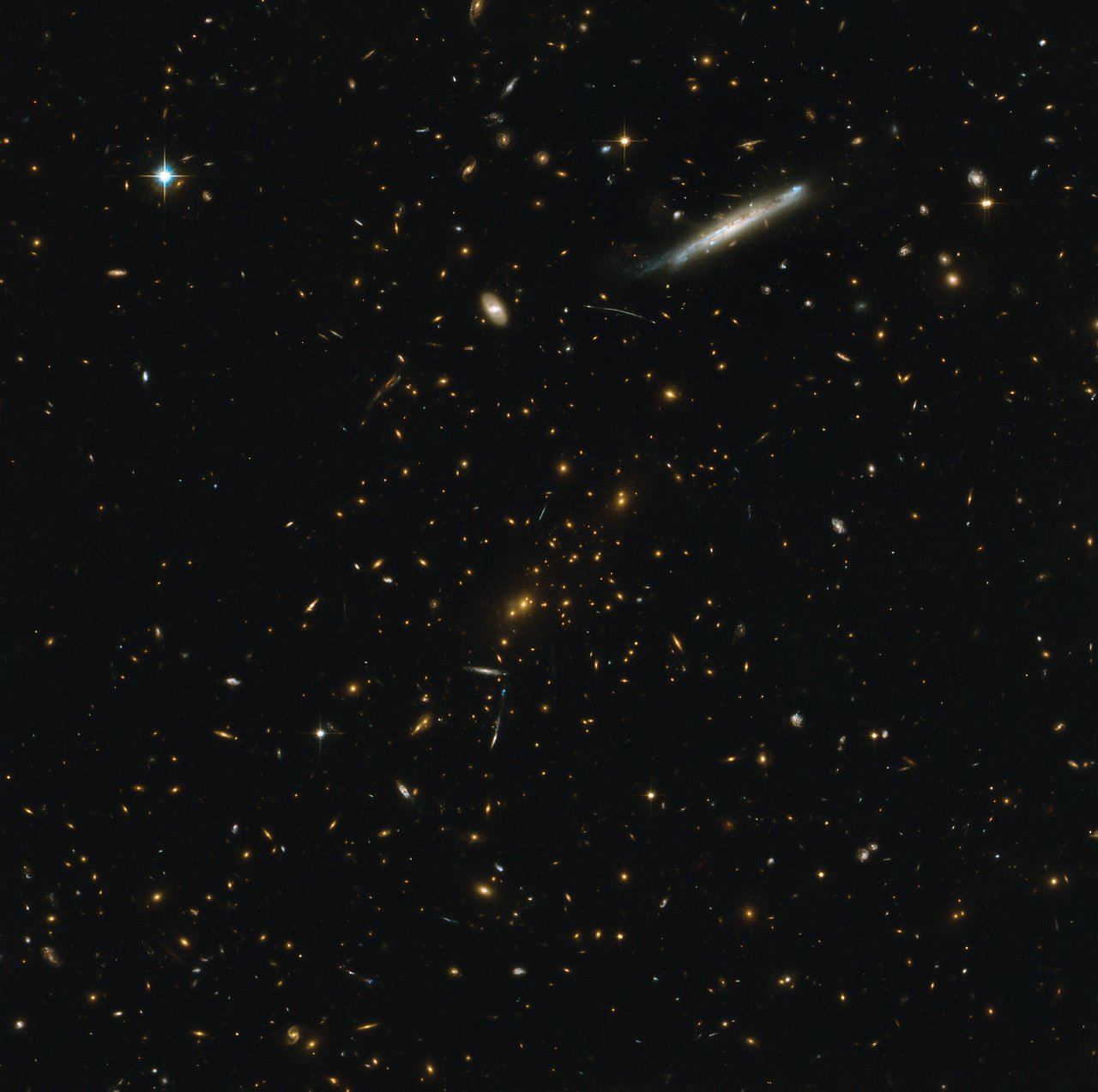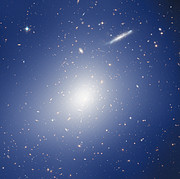Vertailukuva: HAWK-I ja Hubble tutkivat kahden kvadriljoonan auringon massaista joukkoa


Tämä kuva näyttää jotain todella vaikuttavaa: massiivisen galaksijoukon, joka vääristää sitä ympäröivää avaruutta! Joukko, jonka sydän on kuvan keskellä, on saanut nimekseen RCS2 J2327, ja se on yksi massiivisimmista tällä etäisyydellä tai sitä kauempana olevista joukoista.
RCS2 J2327:n kaltaiset massiiviset kohteet vaikuttavat niin voimakkaasti ympäristöönsä, että ne selvästi vääristävät avaruutta ympärillään. Vaikutus tunnetaan gravitaatiolinssi-ilmiönä. Sen vaikutuksesta ne taittavat, vääristävät ja voimistavat kaukaisemmista kohteista tulevaa valoa, minkä ansiosta voimme nähdä galakseja, jotka olisivat muuten liian kaukana havaittaviksi. Gravitaatiolinssi on yksi Einsteinin yleisen suhteellisuusteorian ennustuksista. Voimakas linssi tuottaa hämmästyttäviä kuvia vääntyneistä galakseista ja taipuvista kaarista: niitä molempia nähdään tässäkin kuvassa. Toisaalta taas heikon gravitaatiolinssin vaikutus on hienovaraisempi ja se voi olla vaikea erottaa valokuvassa, ja niitä tutkitaan enimmäkseen tilastollisesti – mutta niidenkin avulla voidaan mitata kosmisten kohteiden massoja, niin kuin tämänkin joukon tapauksessa.
Tämä kuva on yhdistelmäkuva ESO:n VLT-teleskoopin (Very Large Telescope) HAWK-I -havaintolaitteen ja NASA:n ja ESA:n Hubble-avaruusteleskoopin ACS-kameran (Advanced Camera for Surveys) ottamista kuvista. Se on esimerkki vaikuttavan yksityiskohtaisesta tavasta tehdä yhteistyötä heikon gravitaatiolinssivaikutuksen tutkimiseksi kosmoksessa. Tutkimuksessa saatiin selville, että RCS2 J2327 sisältää kahden kvadriljoonan auringon verran massaa!
Massakartta tulee näkyville kuvan keskellä olevaa liukuvedintä käyttämällä. Siinä näkyy joukon kussakin osassa oletetun massan määrä. Kartan muodostaminen oli mahdollista vain galaksijoukon eri alueiden gravitaatiolinssi-ilmiön määrän tarkkojen mittausten avulla.
Linkit:
- HAWK-I ja Hubble tutkivat kahden kvadriljoonan auringon massaista joukkoa
- Galaksijoukko RCS2 J2327
- Schrabback et al. -tutkimusjulkaisu
Oikeudet
ESO
Kuvavertailusta
| Tunnistus: | potw1752a |
| Julkaisupäivä: | 25. joulukuuta 2017 6:00 |

